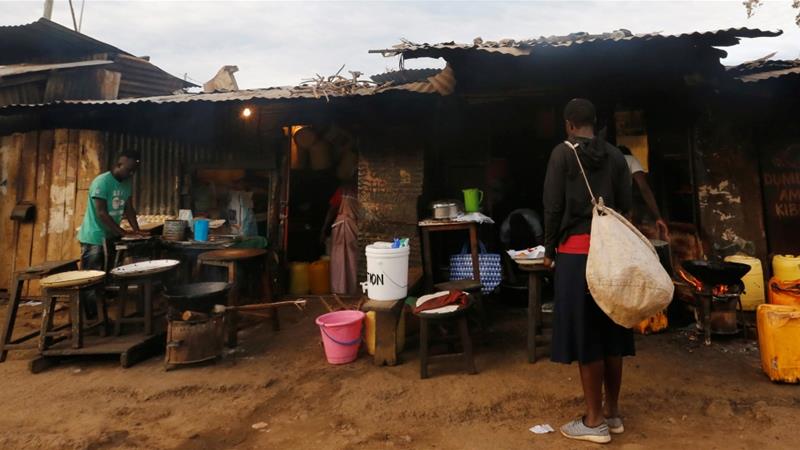Nairobi, Kenya - Like many others in Kenya's capital, Nairobi, Gerrard Ogut has decided to send his family to his village in the countryside for the foreseeable future.
"They're safer there," says Ogut, a father of three. Besides, "Life in the city just got unbearably tougher."
Indeed, these are hard times for many Kenyans - not least because of the fear of contracting the new coronavirus, for which there is no vaccine or known treatment regimen, but also due to the crushing blow the pandemic could deliver on East Africa's largest economy.
Kenya confirmed its first coronavirus case on March 13. Two weeks later, the number had risen to 31.
Amid fears of a major outbreak, the government of President Uhuru Kenyatta announced a series of sweeping measures to slow the spread of COVID-19, the highly infectious disease caused by the virus.
It shut borders and suspended most air travel, except cargo flights.
Kenya also asked government institutions, businesses and companies to allow staff to work from home, "with the exception of employees working in critical or essential services".
Since then, Ogut, a 51-year-old casual labourer daily scouting for work at the factories dotting Nairobi's industrial area, has been scraping by on his meagre savings.
"It has been a dry two weeks," said Ogut, who on a good day used to make between 3,000 Kenyan shillings ($30) and 6,000 Kenyan shillings ($60) working as a small vehicular forklift operator.
"Where I'm stationed, we have mostly mattress, furniture manufacturers," he added, before pausing momentarily. "How many people are thinking of buying those things at this time?"
SOURCE: BBC



